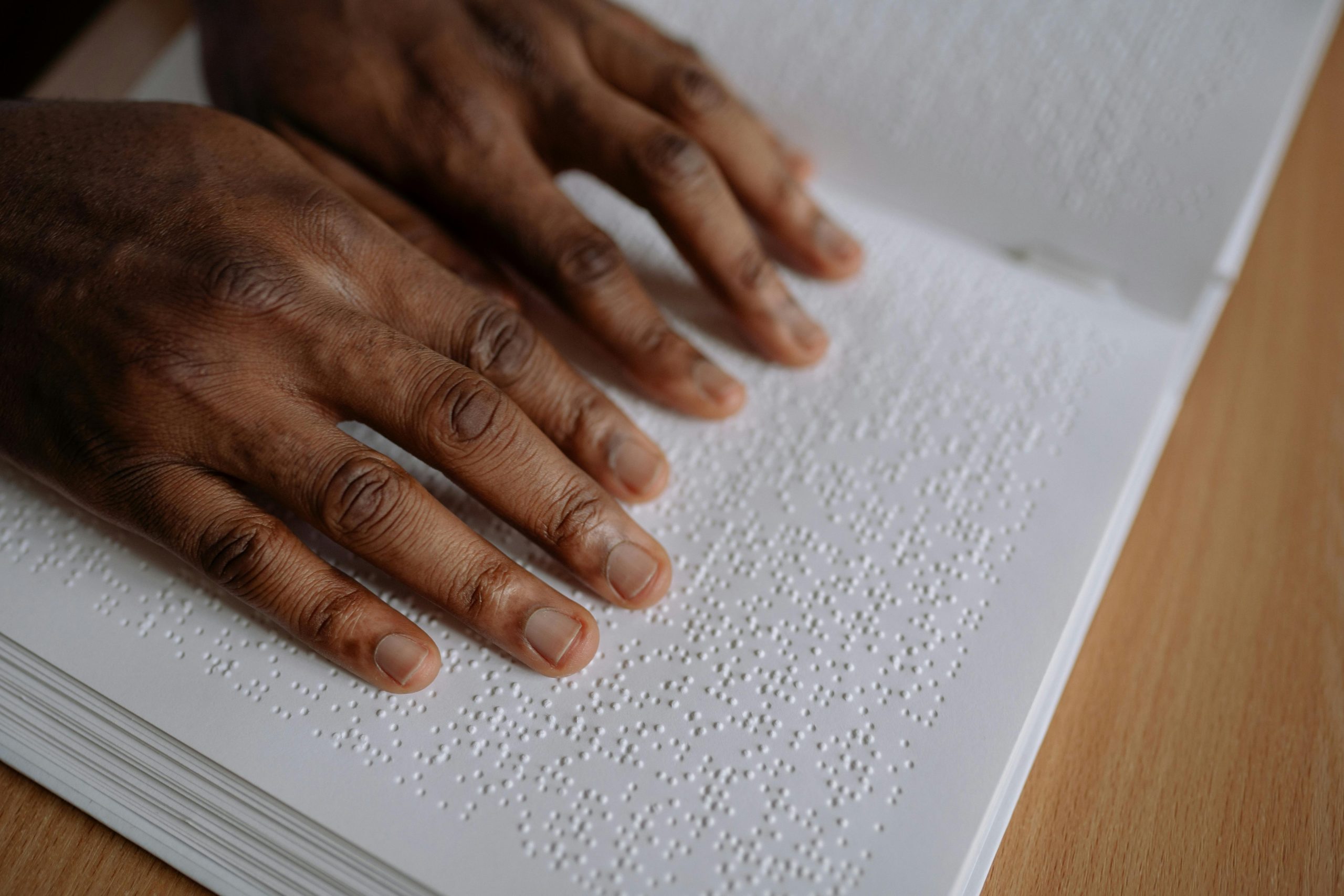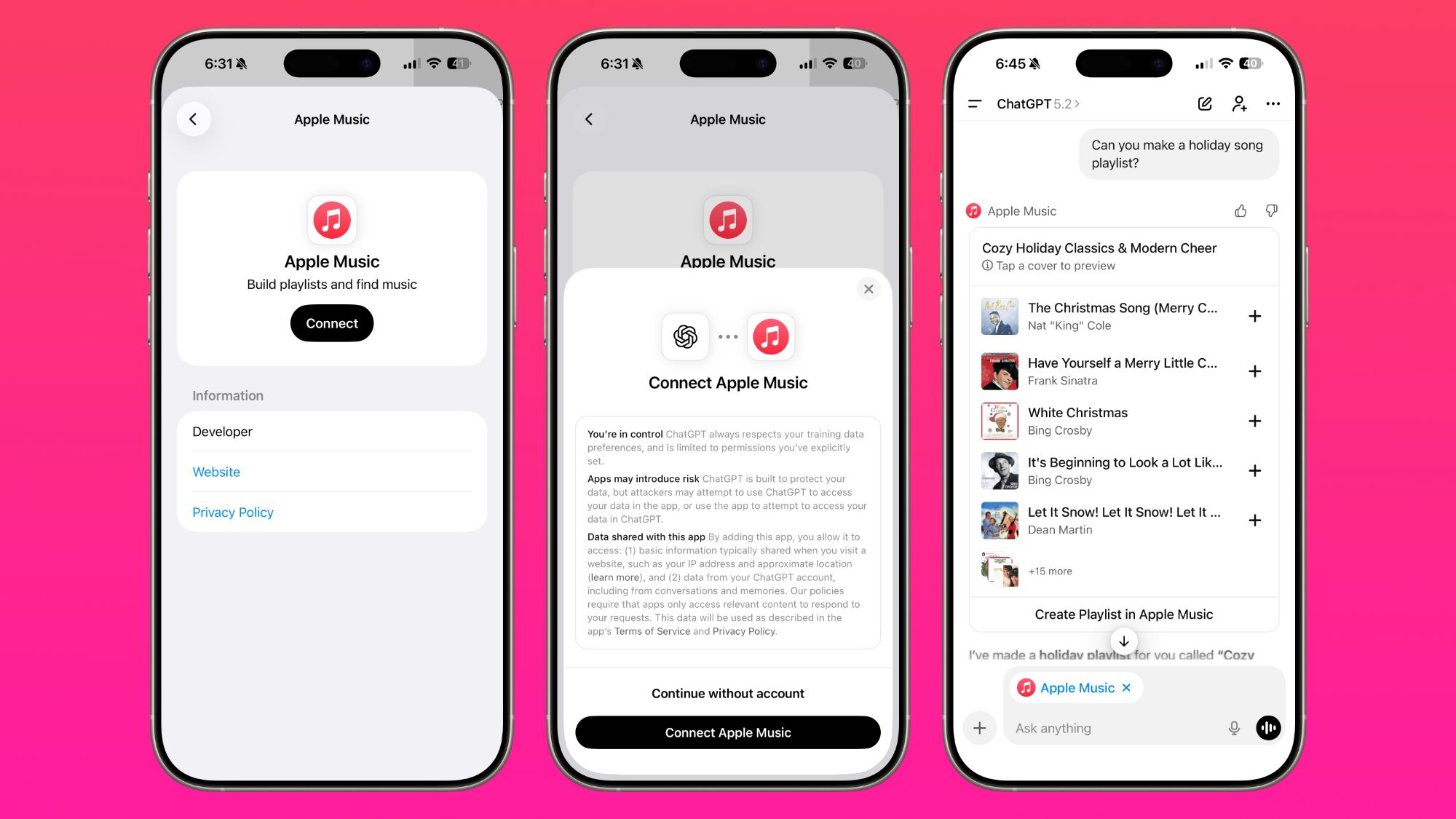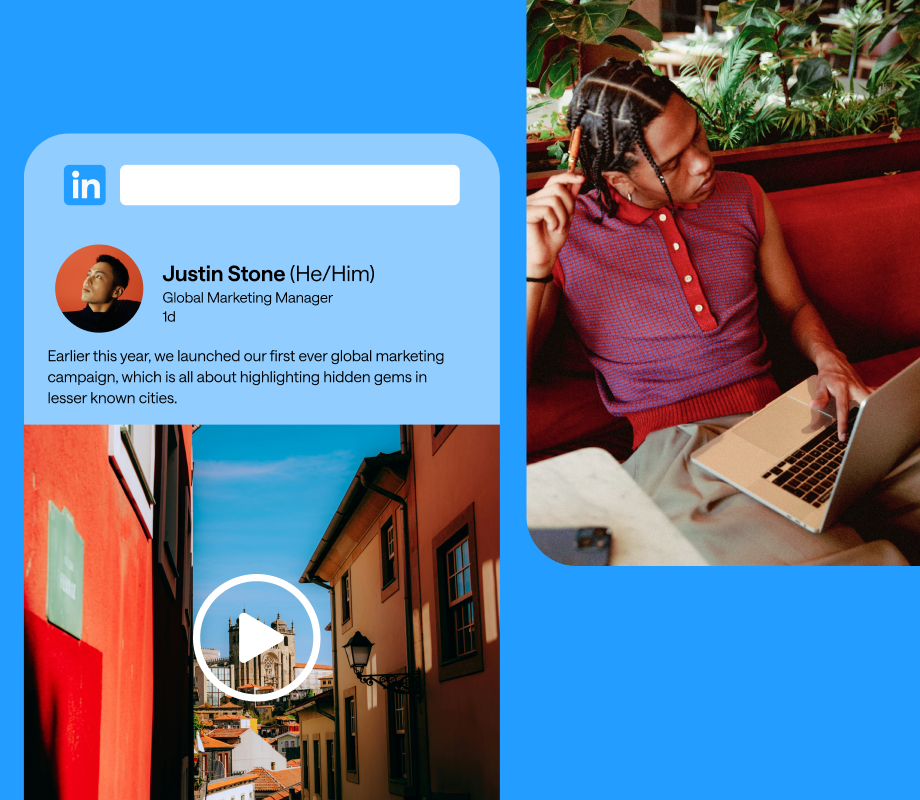In June 2023, United Bank for Africa (UBA) made headlines as the first Nigerian bank to introduce a braille account opening form. The initiative was welcomed as a milestone in financial inclusion, with multi-award-winning musician Cobhams Asuquo calling it a solution to “the problem of access, which has previously been a huge limiting factor for people like me who are blind.”
Two years later, many blind UBA customers say the account opening process still falls short of the bank’s promise. Interviews with over a dozen blind UBA customers across several states reveal that most have never felt or heard of the braille form. Those who were said the forms hadn’t been offered at their branches. Discriminatory practices, they said, remained commonplace at the bank’s outlets, from being asked to bring sighted companions to fill forms to being denied ATM cards or required to sign court documents not required of sighted customers.
A promising launch, an unseen product
The braille form was introduced during a highly publicised event at UBA’s Lagos headquarters on June 27, 2023. The launch featured the bank’s top executives, Lagos State disability officials, and Asuquo, who endorsed it as a game changer for blind Nigerians. UBA said the form would “empower blind customers to independently initiate and complete the account opening process.”
On the ground, that mission has fared differently.
Eja Eji, who opened his account in Nsukka in 2024, said he’d neither heard of the form nor was he offered one when he visited a bank branch to open an account. “If you did not mention it to me, I wouldn’t have known something like this exists,” Eji told . Bank staff asked him to bring a sighted person to assist in the account opening process instead.
Experiences like Eji’s are common. Owning certain accounts in traditional Nigerian banks demands physical presence in a banking hall to complete documentation, collect ATM cards, or activate mobile apps. Although many banks now allow customers to start the process online, it cannot be completed without this physical visit. For blind customers, this stage often poses unique challenges because most forms are only available in print and staff are rarely trained to offer alternatives. Many of the blind persons interviewed for this article said they’ve stopped visiting banking halls after repeated harsh reception, from being told they could not thumbprint to being asked to bring a signatory before their account could be opened.
Olapade Olorunwa, a customer of three years, remembers struggling during her first visit in 2022 to open an account. “It was so stressful that I was unable to accomplish my purpose there that day, until I took a sighted friend,” she said. When she opened a second account in August 2023, just two months after the form’s launch, she said “nobody told me about any braille form.”
Olayinka Samson, a 23-year-old student of the University of Ilorin said though he had a seamless account opening experience in 2022, no staff has ever mentioned the braille form during subsequent visits.
Beyond the braille form
For many blind customers, the issues go far beyond account opening. Several described facing systemic barriers when trying to access even the most basic banking services such as opening and managing an account, collecting or using a debit card, making withdrawals or transfers, and setting up mobile apps. Instead of being routine, these services were frequently denied outright or tied to extra requirements that sighted customers do not face.
Joseph Afolabi, a disability rights advocate and UBA customer, who visited an Abule Egba branch in May 2025 to collect an ATM card, was told to sign a court indemnity form before being issued the card.
An indemnity form protects the bank from liability in case of disputes or losses related to the account or card usage. Banks typically require such forms when they perceive higher risk.
Afolabi explained that he needed the card urgently because he was serving as treasurer for a secondary school alumni project. Without the card, he could not hand over account access to other team members. “They almost derailed that project we were putting together. I just had to fill the form eventually because I was about to travel out of Lagos and I don’t have a bank app to be doing transfer from anywhere because of the same ATM card issue,” he said.
Stories like Afolabi’s show how inaccessible banking processes don’t just frustrate blind customers but also jeopardise responsibilities they hold in their communities and workplaces. In some cases, these restrictions have led to direct financial losses for those who depend on banking access to run their businesses.
Cherish Nnenna, who ran a POS service at the University of Nigeria, Nsukka in 2024, said she was denied an ATM card by UBA, a setback that hurt her business.
Without a card, she had to physically visit the bank each time she needed cash to serve her customers. “There are weekends I make no money because of this ATM card issue. Bank does not work on weekends which means, if I collect money on Friday and it finishes, I am left with nothing until Tuesday or I plead with someone to loan me cash till I go to the bank,” she said. The experience eventually pushed her to abandon UBA and switch to fintechs. “It was really terrible back then until I started using Opay. With my Opay account, I could easily send money to other people’s account or use my Fidelity account to collect money.”
For others, the denial of ATM cards meant more than lost income. It was a blow to their independence. Being forced to depend on relatives or staff for basic transactions stripped away dignity and reinforced harmful stereotypes that blind people cannot manage their own money.
Okpala Chidebere, who has banked at UBA branches in Nsukka and Nnewi, described being told she must open a joint account with her sister in order to receive an ATM card. “If I go alone, the staff shout at me for not coming with a guide,” she said. “First Bank has done something similar, but not to UBA’s extent.”
Oluchi Ekeh, who opened her account in 2022 at UBA Nsukka, said she was simply told she could not receive an ATM card because of her blindness. “They told me they cannot give me an ATM card because I was blind and I felt really bad that day,” she said. She now operates a savings-only account. She also described being turned away by security personnel. “They force me to stand in line and always insist I come with someone. If not, they won’t answer me.”
Even where staff were polite, the outcome was the same: blind customers were denied full access to banking tools, showing how discrimination can be systemic without being openly hostile. A customer in Abeokuta said her branch would not issue ATM cards to blind customers, but treated her politely. “They don’t shout or make me feel bad. Another branch in Abeokuta gives ATM cards easily if you just come with someone.”
When contacted, UBA did not respond to detailed questions regarding the implementation of its braille account opening form nor treatment of blind customers across its branches.
A missed opportunity
Upon launching the form in 2023, UBA’s executive director for finance and risk management, Ugo Nwaghodoh, said the goal was “to ensure that everybody has the right to choose the kind of account they want to operate.”
But the experience of several blind customers brings into question how widely available the bank made the braille forms and its intent to be more financially inclusive, given the on-site hurdles blind customers still face when opening accounts or requesting other financial products.
“To put it mildly, the UBA braille form is a reinforcement of the financial exclusion that blind Nigerians suffer,” said Gbenga Ogundare, a Lagos-based blind journalist. “It is not in any way an innovation that guarantees accessibility because one still requires sighted assistance to use it. So it is more public deception than innovation.”
In addition to a lack of widespread access, the experiences of blind customers have also raised questions about disability inclusion training for staff.
“Do UBA staff even understand braille? Are they trained to support blind customers at all?” asked Olamide Daniel, a disability consultant and UBA business customer, who raised concerns about how the form works in practice. “The braille form does not really bring independence like the bank claims. Did they provide anything for us to fill it with, or are we just meant to read it and leave? Sighted people use a pen to fill forms. What did UBA provide for blind customers? They should first solve issues like the indemnity form and refusal to accept thumbprints before talking about independence.”
The experience of UBA’s blind customers reflects wider issues in Nigeria’s banking sector, where accessibility efforts often fail in practice and service to Nigeria’s more than 7 million blind persons, many of whom bank with UBA.
The gap appears to be driven by several systemic challenges across Nigeria’s banking sector; blind customers face similar discriminatory practices at other major banks.
At Union Bank’s Ogbomoso branch in Oyo State, Abiodun Jephta was flatly refused an ATM card. “They told me I cannot be given an ATM card because I am blind. I was really angry that day and no matter my explanation and pleading, they refused,” he said. Unlike at UBA, he wasn’t even offered the option of signing an indemnity form.
Olopade Olorunwa encountered similar rejections at two different First Bank branches. At the Lawansin Surulere branch, staff demanded she go to court to sign an indemnity form in 2024, while the University of Ilorin branch also refused to issue her a card. “Honestly, I don’t have any ATM card right now because I don’t see any reason why I should sign a form before I am given an ATM card,” she said.
The discrimination extends beyond card issuance. Michael Chukwudi, who opened a Zenith Bank account online, was told at the Onitsha electronic market branch that they couldn’t assist him with updating his account because he was blind and couldn’t sign, and they lacked thumbprint identification methods. He abandoned the account entirely.
Blessing Harrison faced particularly restrictive treatment at a First Bank branch in Ebonyi, where she was told she shouldn’t have an ATM card and needed a signatory for her account. When she requested to use a withdrawal slip instead, staff refused until she threatened to close her account.
First Bank and Union Bank did not respond to requests for comments by deadline.
The hostility sometimes comes from unexpected sources. David Eche described being humiliated by a Guaranty Trust Bank security guard in Makurdi who questioned why he had been given an ATM card at all. “The guard actually said he does not know why I was given an ATM card in the first place. He was really shouting and saying these things. Since that day, I stopped banking with GT,” he said.
When reached for comment, an official of the bank who asked not to be named to speak freely, said the bank has made progress over the last three years on financial inclusion. The official explained that text to speech software has been activated on some ATMs and that the bank is working to introduce braille forms and improve digital accessibility services. A link has also been published on the bank’s website to help customers locate accessible ATMs.
These moves align with the Central Bank of Nigeria’s Guidelines on Operations of Electronic Payment Channels (2020), which mandate that at least 2% of ATMs deployed by banks carry a tactile graphic symbol for the use of visually impaired customers. The guidelines further require that the locations of such ATMs be visibly publicised on the bank’s corporate website.
Although the policy has been in place for the past five years, very few ATMs have these features functioning. Banks that fail to comply risk sanctions, including suspension from deploying additional ATMs and fines of ₦1 million for each machine that falls short of the standard.
On the contentious issue of indemnity forms, the official described them as a tool that allows the bank to deliver services efficiently while balancing convenience with safeguards against undue risk. According to the official, the forms make it possible to act quickly on requests from visually impaired customers such as replacing documents or processing transactions without delays while ensuring that responsibilities are clear on both sides.
Responding to concerns raised by some customers about negative experiences at bank branches, the official said:
“Indeed, we hold ourselves to the highest standard of care in serving all our customers, including those who are blind or visually impaired. Our commitment is to ensure that their banking experience is safe, inclusive, and respectful at every touchpoint.
We recognise that a few customers have raised concerns in the past, and we see these as opportunities to better understand and respond to their unique needs. We take such feedback seriously, as it helps us improve. Our goal remains simple: that every customer, regardless of ability, feels valued, supported, and confident banking with us.”
Legal and regulatory protections
Blind customers are protected under the Discrimination Against Persons with Disabilities (Prohibition) Act 2018, which explicitly forbids unfair treatment based on disability. Section 1 states: “A person with disability shall not be discriminated against on the ground of his disability by any person or institution in any manner or circumstance.” Yet, the experiences of blind customers suggest this protection is not fully enforced, leaving millions excluded from financial services.
Several CBN frameworks including the Consumer Protection Framework 2016, the National Financial Inclusion Strategy 2022 and the Nigerian Sustainable Banking Principles further establish that persons with disabilities should be treated fairly, granted equal access, and provided with products and guidance suited to their needs.
The frameworks for financial inclusion in Nigeria exist, but the challenge is translating those policies into reality. Until banks begin to prioritise persons with disabilities and involve them in shaping these policies, initiatives like UBA’s braille form or the controversial indemnity form will continue to be seen as token efforts, rather than meaningful steps toward inclusion.
Mark your calendars! Moonshot by is back in Lagos on October 15–16! Meet and learn from Africa’s top founders, creatives & tech leaders for 2 days of keynotes, mixers & future-forward ideas. Get your tickets now: moonshot..com










